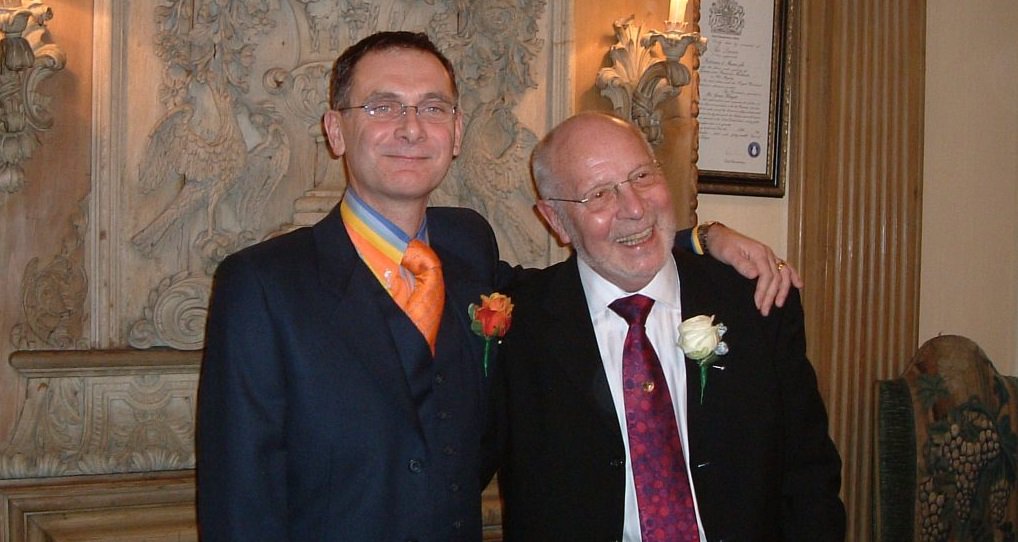‘Older LGBT people don’t want to be put back in the closet – we have to fight’

According to a new report by Marie Curie, LGBT people across the UK aren’t getting the end of life support that they need.
A fear of stigma and discrimination often means many older people delay accessing vital, are forced back into the closet, and are more likely to experience unmanaged symptoms and pain at the end of their lives.
In the wake of the report’s findings, Attitude’s Darren Mew spoke to 60-year-old Jonathon, who partner passed away last year following a ten-year battle with bowel cancer, about the pair’s experiences of care and the healthcare profession.
You grew up in a completely different era of gay acceptance – or lack thereof. How did you find that?
The older generation grew up in an aggressive environment, where you had to hide your sexuality. Me and my partner, because he was older, were brought up in a world where being gay was illegal. I was beaten up. When civil partnerships came about, the homophobia in government was disgusting. This has led the to older generation of LGBT people not wanting to sit down and accept being put back into the closest – because many have to in care homes. We have to fight.
How was your over all experience will the hospice?
[My partner] was diagnosed in 2005, was palliated in 2011 and died 10 months ago and . He went to our local hospice called Kirkwood hospice in Huddersfield. The care and love for their patients was wonderful. They gave him his life back.

How did you get treated as a gay couple?
As the illness grew their involvement grew. We went to the support group and everyone knew us, so by the time we got to his last emission we didn’t have to come out all the time. That’s the frustrating thing about being an ordinary LGBT person, a celebrity only has to come out once. It’s not like Sir Ian McKellen would get asked “What cancer does your wife have?” Gender and sexuality don’t come into it when you have a life threatening illness. My partner had two operations, the second one was major. The doctors didn’t tell us what would happen after. You don’t go in with your eyes wide open knowing the possibilities, health care practitioners don’t do that.
What would you like to see change for LGBT people being cared for?
I’ve started getting involved in making changes. I talk at Leeds medical school. I go in primarily as a career but also as an LGBT person to tell doctors to be more open. If they can’t handle different sexualities and genders, then get someone who can. I’m thinking about moving but having to stay in the same area because all the health care professionals here know me. I don’t have to constantly come out all the time which I would have to do if I moved further away. I don’t think any straight people have to think like that.
Also to not make assumptions. I don’t get a kick out of being called straight; I was very offended when I got in touch with an advocacy helpline and the woman assumed I was. Don’t get me wrong, afterwards she was lovely. The LGBT training is very low key, which needs to be addressed.

Is there enough support out there for LGBT people with life threatening illnesses and for family and friends?
No, there needs to be more LGBT support groups. The hospice one was great, but when you’re feeling vulnerable going to room full of straight people isn’t fun, having to keep telling everyone your partner was a man. It makes you feel like an outsider. In London being gay is part of the community. Being gay you mix in more. In smaller cities it’s not like that. You want to be treated in a humane way. Your gender and sexuality should be no barrier to any treatment or any access at all.
Interview: Darren Mew
More stories:
LGBT people are facing discrimination as they die
Male migrants and asylum seekers in Greece are turning to sex work in order to survive
